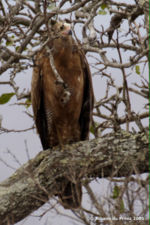Harrier Hawk
2007 Schools Wikipedia Selection. Related subjects: Birds
| iHarrier Hawk | ||||||||||||||
|---|---|---|---|---|---|---|---|---|---|---|---|---|---|---|
|
|
||||||||||||||
 Least Concern (LC) |
||||||||||||||
| Scientific classification | ||||||||||||||
|
||||||||||||||
|
|
||||||||||||||
| Polyboroides typus Smith, 1829 |
The Harrier Hawk, African Harrier Hawk or Gymnogene (Polyboroides typus) is a bird of prey. It is about 60-66cm in length, and is related to the harriers. It breeds in most of Africa south of the Sahara.
Its habitat is woodland preferably with palm trees and often near water. It builds a stick nest in the fork of a tree or the crown of a palm tree. The clutch is one to three eggs.
The Harrier Hawk is a medium-sized raptor. The upperparts, head and breast are pale grey. The belly is white with fine dark barring. The broad wings are pale grey with a black trailing edge fringed with a narrow white line. The tail is black with a single broad white band. There is a bare facial patch of variable colour. Sexes are similar, but young birds have pale brown instead grey, and dark brown replacing black.
The Harrier Hawk is omnivorous, eating the fruit of the Oil Palm as well as hunting vertebrates. Its ability to climb, using wings as well as feet, and its long double-jointed legs, enable this bird to raid the hole nests of barbets and woodhoopoes for fledglings. The call is a whistled sueee-sueee-sueee.
